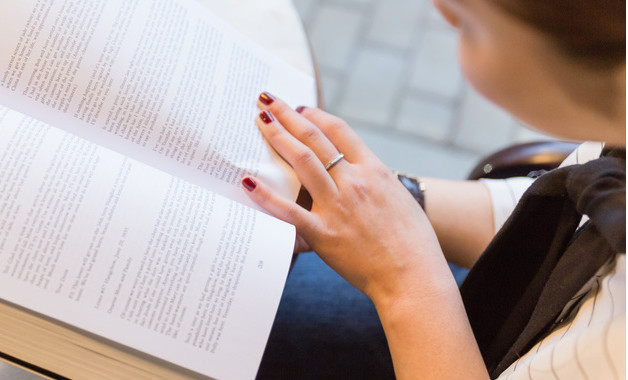
第1篇 2022高考英语知识点总结:动词时态和语态
2022高考英语知识点总结:动词时态和语态 动词的时态和语态是历年高考英语测试的重中之重,一般占1—2道题。命题思路有三:一是直接给出标志性时间状语,考生能依据所给时间状语作出选择;二是给出时间状语,但所给时间状语有着较强的干扰性,考生不能直接根据时间状语作出选择,需要结合语境判断;三是没有任何时间状语,需要借助于上下文语境,才能作出正确判断。 考生应熟知常用时态和被动语态的构成及用法。高考题往往不会涉及单一的时态语态,而是更多地侧重于时态的交叉使用和呼应及与语态的结合使用。所以解题时一定要结合语境,弄清时间的先后关系,可根据不同情况采取“找标法”(寻找时间标志词)、“呼应法”(主从句时态呼应)、“搭配法”(固定搭配)、“语境法”等解题技巧。 一?识别标志词 如果题干中有标志性的时间状语,则往往可以根据时间状语选择相应的时态? [例]①more than a dozen students in that school ________ abroad to study medicine last year. a. sent b. were sentc. had sentd. had been sent [解析] 此题有明显的时间标志词last year,提示我们应该使用一般过去时;句中的主语students是被送的对象,应该使用被动语态?答案为b? 动词的时态一般都有其相应的时间状语,请同学们熟记下列8种常用时态所对应的时间状语? (1)一般现在时:often, always, usually, seldom, now, every day等? (2)一般过去时:then, yesterday, last week, after that, ago, in the following/next few months等? (3)现在进行时:now, right now, at present, at this moment, these days等? (4)过去进行时:then, at that time, at this time yesterday等? (5)现在完成时: recently, lately, up to/till now, so far, in the past/last few months/years…, for+一段时间, since + 一点时间等? (6)过去完成时:before, by the end of last month/years…等? (8)过去将来时:the following month, the next week等? [命题角度及对策]高考测试动词时态须与句中时间状语一致时,常在题干中加入具体情景,以测试考生对动词时态知识的实际运用能力?敏锐捕捉时间标志词,并结合具体的语境,选择出正确的动词时态,是解决此类问题的良策? 二?主从时态须呼应 如果所给题干是主从复合句,可根据主从句时态呼应的原则选出正确的时态? 命题角度及对策]近年来高考考查主从句的时态呼应时,常放在真实的并且符合实际的语境中进行考查?在根据时态呼应原则解题时,要把握好以下几点: (1)在时间?条件等状语从句中,用一般现在时表示一般将来时,一般过去时表示过去将来时,用现在完成时表示将来完成时? (2)正确认定主句动词及从句动词两个动作发生的时间,并认真体会命题者所给出的语境? (3)解答宾语从句与主句时态呼应题时,考生应熟知以下规则:主句动词为现在时,则从句动词可根据需要使用任何时态;主句动词为过去时,则从句动词须用恰当的过去的某种时态(表示客观真理时使用一般现在时)? 三?仔细体会语境 近年来高考试题对时态语态考查的要求越来越高,大部分试题趋向情境化?实际化?因此,仔细体会所给语境,根据具体语境选择合适的时态是考生需要重点解决的问题? 例:—do you think we should accept that offer? —yes,we should,for we______ such bad luck up till now,and time______ out. a. have had;is running b. had;is running c. have;has been run d. have had;has been run 答案解析 a。由时间标志词up till now知道,动作是从过去延续到现在,所以第一空要用现在完成时;而根据语境可知时间快要耗光了,所以第二空要用进行时表将来。 —can you tell me the timetable of the__________school bus? —well, the bus__________here for the __________campus at 7:00 a.m.. a.will leave b.left c.is leaving d.leaves 答案解析 d。考查时态,“校班车的时间表”是规定好的事情,表示一般性动作用一般现在时。 精选试题 模拟题及其答案 1. — what’s that terrible noise ? — the neighbors _____ for a party. a. have prepared b. are preparing c. prepare d. will prepare 2. now that she is out of a job, lucy _____ going back to school, but she hasn’t decided yet. a. had considered b. has been considering 3. the mayor of beijing says that all construction work for the beijing olympics _____ by 2022. 4. selecting a mobile phone for personal use is no easy task because technology ____ so rapidly. a. is changing b. has changed c. will have changed d. will change 5. i _____ ping –pong quite well, but i haven’t had time to play since the new year. a. played b. will play c. have played d. play 6. visitors ______ not to touch the exhibits. a. will request b. request c. are requesting d. are requested 7. john and i _____ friends for eight years. we first got to know each other at a christmas party. but we _____ each other a couple of times before that. a. had been; have seen b. have been; have seen c. had been; had seen d. have been; had seen 8. this is ted’s photo. we miss him a lot. he ______ trying to save a child in the earthquake. a. killed b. is killed c. was killed d. was killing 9. — how are the team playing ? — they are playing well, but one of them _____ hurt. a. got b. gets c. are d. were 10. — you haven’t said a word about my new coua, brenda. do you like it ? — i’m sorry, i _____ anything about it sooner. i certainly think it’s pretty on you. a. wasn’t saying b. don’t say c. won’t say d. didn’t say 11. i wonder why jenny ____ us recently. we should have heard from her by now. a. hasn’t written b. doesn’t write c. won’t write d. hadn’t written 12. my uncle ______ until he was forty –five. a. married b. didn’t marry c. was not marrying d. would marry — i will go to see you when you _____ the training course. a. will have finished b. will finish c. are finishing d. finish 14. — how long _____ at this job ? — since 1990 a. were you cmployed b. have you been employed c. had you been employed d. will you be employed 15. with the rapid growth of population, the city _____ in all directions in the past five years. a. spreads b. has spread c. spread d. had spread a. has been broken b. breaks c. broke d. was broken a. has grown b. is growing c. grew d. had grown 18. why don’t you put the meat in the fridge ? it will _____ fresh for several days. a. be stayed b. stay c. be staying d. have stayed 19. — sorry, joe, i didn’t mean to — don’t call me “joe”. i’m mr parker to you, and _____ you forget it ! a. do b. didn’t c. did d. don’t 20. at this time tomorrow _____ over the atlantic. a. we’re going to fly b. we’ll be flying c. we’ll fly d. we’re to fly 21. the news came as no surprise to me. i _____ for some time that the factory was going to shut down. a. had known b. knew c. have known d. know 22. i thought jim would say something about his school report, but he ______ it. a. doesn’t mention b. hadn’t mentioned c. didn’t mention d. hasn’t mentioned 23. no one in the department but tom and i _____ that the director is going to resign. a. knows b. know c. have known d. am to know 24. although he has lived with us for years, he ______ us much impression. a. hadn’t left b. didn’t leave c. doesn’t leave d. hasn’t left 25. how can you possibly miss the news ? it _____ on tv all day long. a. has been b. bad been c. was d. will be 26. — sorry to have interrupted you. please go on. — where was i ? — you _____ you didn’t like your father’s job. a. had said b. said c. were saying d. had been saying 27. i arrived late; i _____ the road to be so iey. a. wouldn’t expect b. haven’t expected c. hadn’t expected d. wasn’t expecting 28. i ______ while reading the english textbook. luckily, my roommate woke me up in time ! a. had fallen asleep b. have fallen asleep c. fell asleep d. fall asleep 29. let’s keep to the point or we ______ any decisions. a. will never reach b. have never reached c. never reach d. never reached 30. my mind wasn’t on what he was saying, so i’m afraid i _____ half of it. a. was missing b. had missed c. will miss d. missed 答案与解析 1、b 根据题意先排除d 项,因为回答方要说明书现在的情况;a项have prepare说明已经准备好,c项prepare是目前的习惯性动作,b项瑞在进行时表示动作的示完性。因此b 项为答案。 2、b 句意:因为lucy失业了,所以她在考虑重返校园,但她现在还没决定。根据题意说话者在说现在的情况,因此排除了a、c、d三项,b飞行员现在完成进行时,表示现在的事,进行时强调“考虑”这个动作的“未完性”,所以是答案。 3、c 句意:北京市市长说所有北京奥林区克建筑将于2022年完成。此题考查英语动词的语态和时态,很显然本题应该用被动语态,因此排除b、d根据时间状语by2022,应选择将来完成时,因此选c。 4、a 题干中主句为selecting a mobile phone …is no easy task,谓语动词表示了一种“含此刻在内的广泛意义上的现在时间”,使用的是一般现在时态(…is no easy task);后面的状态从句(because…)中则说明原因为“技术更新变化迅速”,应采用现在进行时:(technology)is changing(so rapidly).现在进行时态在此表示了一种“持续变化”的状态,体现了“变化、趋势、发展和进展” 5、d 题干后的分句(but…)为转折语气,并在句中使用了现在完成时态(i haven’t had time to play),表示自从new year以来一直没有打过乒乓球,由此可以排除选项b(will play)、c(have played).由此推断前一人句中所说状态为“含此刻在内的广泛意义上的现在时间”,则空中应该使用一般现在时态表达这一时间概念。 6、d 句意为:参观者被要求不触摸展品。所以应该用被动形式。 7、d第一空为现在完成时,与一段时间状语连用(for eight years);第二空:在一次晚会上认识之前就见过,上是“过去的过去”的一个动作,帮选d。 8、c 从上下文可知,ted已经死了,属于过去发生的事情, 对于动词kill来讲,应是被动关系,故选c 9、a 由题中所设语境可知,一句队员受伤应是过去的动作,故选a。 10、d从对话题干所设语境看,此处谈论的是过去所没有发生的事(you haven’t said a word…)此对话中,brenda 为自己没能对朋友所穿新衣早加赞赏向对方表示歉意;sooner(=at an earlier time)作为附加状语传达了十分重要的时间信息。 此处仍应使用表示过去行为的简单过去时,与后面句子中的现在时态(i certainly think…)形成对照。其余选项所给时态…hasn’t written us recently。 11、a 前句中recently与事句中动词民用的语气为重要提示:we should have heard from her by now.=we haven,t heard from her by now此处讨论最近该发生而没发生的事,用现在完成时态:…hasn’t written us recently. 12、b marry是终止性动词,用在此not…until句型中表示“我叔叔直到四十五岁才结婚。” 13、d when从句中通常用一般现在时形式表将来时间。 14、b答语中的since1990是关键信息。 15、b 时间状语in the past five years与现在时间有关。 16、d图书馆的安静被打破,故须用被动语态;情景中找不出与现在有关的时间信息,故a是错误的。 17、c grow与as从句里的wait发生。 题干前半句为时间状语,提供了极为重要的时间线索:all morning as she waited…,表示了过去的一段延续时间,本空之中动词所表示的行为(her nervousness “grow”)与此同时进行。此处仍应使用一般过去时。 本题中与现在时间相关的两个选项(a. has grown b is growing)很容易排除;d项(had grown)过去完成时态,应用于表示过去特定时间之前的行为,与语境不符,也可排除。 18、b stay这晨是系动词的用法,不用被动形式。 根据本题设空之后所执着续的形容词fresh判断,选项所给动词stay为系动词(=to continue or remain in a place ,position or condition——collins new english dictionary), 因此,很容易排除a项(系动词不可能使用权用被动语态);从句意看,说话人向对方提出建议(why don’t you…?),然后阐明依据(the meat will…),应该是stay 的一般形式,而不会是进行式(c 项be staying)或完成式(d项have stayed)。 19、d注意mr parker 这里针对的是“sorry , joe”这件事,而不是“ i didn’t mean to…”那件事。而前者正是“此时此刻”发生的,故应用一般现在时。句意:你应称呼我帕克先生,你不是忘了吧!题干选材为大小对话形式,语境完整,前者向 joe道歉,后者(joe本人)拒不接受道歉,认为称呼自己为joe是:“套近乎”。提醒并*千对方,语气非常严厉。 20、b at this time tomorrow 指明的是将来的某一具体时间,故用来将进行时。 21、a 在the news came 之前我就已经知道,故用将来进行时。 22、c but连接的并列句,时态与thought一致。 23、a句子的主语是no one,谓语动词应当用单数。 24、d although从句中的has lived是非常重要的时间住处说话的人的意思是:虽然他与我们一起生活多年(从过去到现在),但他没有给我们留下多少印象。所以,这里使用c项是不恰当的。 25、a根据can的形式(而不是could)可以判断,这里并不是谈论纯粹的过去或过去的过去,但显然也不是将来时间。 26、c 语境中暗含着一个时间信息:当我打断你说话的时候。 27、c arrive是关键信息:(我在出发之前)没有预料到路会这么滑。这里谈论的显然是过去(started)的过去(had expected). 28、c根据woke(wake 的过去式)可以判断,这里谈论的与“现在”无关,因此可以排除b和d两项。i是在读书期间睡着的(while reading),而不是在之前睡着的,所以a项也是不恰当的。 29、a 句意:请不要偏离话题,不然的话,我们就不会取胜得决定。祈使句与and 或or 连用是常见的说法,又如:turn left and you will find the bookstore.向左转,你就会找到那个书店里。listen to me or you will never succeed.听我的话,否则,你不会成功的。同时在谈到will do和be going to do 表示将来的区别时,will表意愿和既时的将来,而后者表示计划的或有迹象的将来。例如: give him the big apple or he oil not allow us to go with him. —i was going to ,but my wife returned. 30、d 句意:(当时)我并没有注意他说的话,所以(现在)我觉得他讲的话一半我没有听到。题干句中透圳出时间信息的三个地方:wasn’t ,was saying和i’m afraid是做出选择的重要依据。
第2篇 2022中考英语知识点总结:被动语态的构成及用法
一、被动语态
被动语态的基本结构为:be+动词的过去分词
各种时态的主动、被动语态的结构如下表(以动词do为例):
时态 主动语态 被动语态 例句
主动语态 被动语态
一般现在时 do/does am/is/are+done we clean the classroom.. the classroom is cleaned by us.
一般过去时 did was/were+done he made the kite. the kite was made by him.
现在进行时 am/is/are+doing am/is/are+being done she is watering flowers. flower are being watered by her .
现在完成时 have/has+done have/has+been done jim has finished the work. the work has been finished by jim.
一般将来时 will/shall/be going to+do will/shall/be going to+be done they will plant trees tomorrow. trees will be planted by them tomorrow.
过去进行时 was/were+doing was/were+being done she was writing a letter this time yesterday. a letter was being written by her this time yesterday.
过去完成时 had+done had+been done jim had finished the work. the work had been finished.
过去将来时 would/should/be going to+do would/should/be going to+be done he said he would make a kite. he said a kite would be made by him.
含有情态动词 can/may/must+do can/may/must+be done i can find him. he can be found by me.
一.被动语态的用法:在被动语态中,主语是动作的承受者,主要用于下列几种情况:
(1)不知道动作的执行者是谁。如:this watch is made in china.更多资料qq378459309制作:
(2)没有必要指出动作的执行者是谁。如:more trees must be planted every year.。
(3)需要强调或突出动作的承受者时。如:chinese is spoken by more and more people in the world.
(4)句子的主语是动作的承受者。如:many houses were washed away by the food.
二、主动语态和被动语态的转换
1.主动语态变为被动语态
(1)要将主动句里的宾语变为被动句中的主语,若主动句中的宾语是人称代词,要将宾语变成主格。
(2)把主动句中的主语变为被动句中的宾语,主格变成宾格,并用by引导。
(3)谓语动词变成相应的被动形式。
主动语态: 动作执行者+谓语动词主动形式+动作承受者
被动语态: 动作承受者+谓语动词被动形式+动作执行者
如:we asked him to sing an english song.(变为被动语态) →he was asked to sing an english song by us.
2.带双宾语的谓语动词变为被动语态
谓语动词带双宾语时,既可以将间接宾语转化成主语,也可以将直接宾语转化为主语。若将间接宾语转化为主语,则保留直接宾语;若将直接宾语转化为主语则保留间接宾语,且在被保留的间接宾语前加上介词to或for。如:she gave me a book.(变为被动语态) →i was given a book by her.(间接宾语me改为了主语)
a book was given to me by her.(直接宾语a book 改为了主语)
3.动词短语变为被动语态
许多由动词和介词、副词构成的动词短语相当于及物动词,可以有宾语,也可以有被动语态。在变为被动语态时,不可丢掉构成动词短语的介词或副词。如:we should speak to old men politely.(变为被动语态)
old men should be spoken to politely.(to不可省略)
4.带复合宾语的动词变为被动语态
宾语加上宾语补足语一起构成复合宾语。变被动语态时,只把宾语变为被动句的主语,宾语补足语保留在原处,成为主语补足语。如:i heard jane playing the piano in her room.(变为被动语态) →jane was heard playing the piano in her room.
5.变被动语态后动词形式的选择
主动句中在感官动词see,hear,watch,feel,notice等,及使役动词let,make,have等后跟省略to的不定式,变为被动句时,应加上不定式符号to。如:he makes the girl stay at home.(变为被动语态)→the girl is made to stay at home by him.
第3篇 初三英语被动语态知识点归纳总结
主动语态(the active voice)表示主语是动作的执行者。 被动语态(the passive voice)表示主语是动作的承受者。 构成:承受者+助动词be+及物动词的过去分词+by+执行者
一般现在时:承受者+助动词am / is/are +及物动词的过去分词+by+执行者
一般过去时:承受者+助动词was / were +及物动词的过去分词+by+执行者 承受者+助动词shall / will be+及物动词的过去分词+by+执行者 承受者+助动词 have/ has been+及物动词的过去分词+by+执行者 承受者+ can /may/must/should +be+及物动词的过去分词+by+执行者 被动语态用法:
1)当我们不知道动作的执行者是谁,或者没有必要指出动作的执行者时,需用被动语态。 2)当我们需要强调动作的承受者时,常用被动语态。
3)如果需要说出动作的执行者, 用by引导出动作的执行者。
主动语态变为被动语态时,其谓语动词的时态要与原句时态保持一致,其谓语动词的数要与新主语保持一致。
主动语态变为被动语态时有以下几种情况: 1)主语+谓语动词+宾语
将主动语态的宾语变为被动语态的主语。 (主动)we bought a book yesterday. (被动)the book was bought yesterday. 2)主语+谓语动词+间接宾语+直接宾语
将主动语态中一个宾语变为被动语态的主语。多数情况下将间接宾语变为主语。如果直接宾语变为主语时,间接宾语前要加介词to / for。 (主动)he showed me a book yesterday. (被动)i was showed a book yesterday. (被动)the book was showed to me yesterday. 3)主语+谓语动词+复合宾语
含有一个由宾语加宾语补足语构成的复合宾语,变为被动语态时,将主动语态的宾语变为被动语态的主语,宾语补足语保留不变,成为主语补足语。 (主动)i found him a good pupil. (宾语补足语) (被动)he was found a good pupil. (主语补足语) 4)短语动词变为被动语态
有些短语动词相当于一个及物动词,其后可以接宾语,因此它们也有被动语态,但短语动词是不可分割的整体,变为被动语态时不可去掉其后面的介词或副词。 (主动)we should look after the patients very well.
(被动)the patients should be looked after very well by us. 5)宾语从句变为被动语态
若主动语态中是宾语从句,变为被动语态时常用it作形式主语,而把真正的主语放在后面。 it’s said that he passed the exam. 被动语态应注意的几个特殊问题:
(1)不及物动词带介词和介词宾语,在变为被动语态时,仍然要带上介词。 (主动)the students in class listen to the teacher carefully. (被动)the teacher is listened to carefully by the students in class.
(2)当动词带有复合宾语时,并且宾补是省去“to”的动词不定式时,在被动语态中应加上“to”。
(主动)they make do all the work. (被动)we were made to do all the work. (主动)we often hear her sing english songs. (被动)she is often heard to sing english songs. (主动)i see him walk to school. (被动)he is seen to walk to school.









